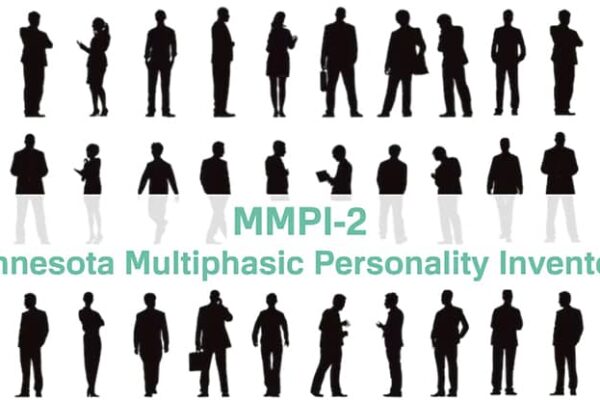The psychology of a happy life is a field of psychological research aimed at studying the factors, mechanisms, and conditions that contribute to increasing a person’s level of subjective well-being and happiness in life.
It examines various aspects, including positive emotions, life satisfaction, attitudes towards oneself and the world, interactions with others, and the role of goals and life purpose.
The psychology of a happy life also explores techniques and strategies that can be used to enhance one’s level of happiness and well-being, including mindfulness practices, self-improvement, developing empathy and compassion, building positive interpersonal relationships, and improving the quality of one’s thoughts and emotions.
It emphasizes that happiness is not just the absence of negative emotions but also the presence of positive experiences and the ability to enjoy life, regardless of external circumstances.

Definition of a “Happy Life”
A happy life is a state where a person experiences satisfaction, joy, and well-being in most life circumstances. However, happiness is a subjective experience and can vary greatly from person to person, as it depends on personal values, beliefs, and goals.
Some people associate a happy life with achieving certain external goals, such as professional success, wealth, or societal recognition. Others see a happy life as harmony in personal relationships, emotional well-being, personal growth, or the ability to enjoy small things every day.
It’s important to note that happiness itself cannot be called a permanent state. Even the happiest people experience moments of sadness, disappointment, or stress. However, their ability to recover and overcome negative moments is one of the key aspects of a happy life.
A happy life is often associated with psychological well-being, which includes autonomy, self-respect, self-acceptance, personal integrity, the ability to set and achieve goals, and maintain quality interpersonal relationships.

Psychology of a Happy Life: Understanding Happiness
Happiness is a complex concept that encompasses a wide range of positive emotional states, from simple pleasure to life satisfaction. It is a subjective experience, and each person has their own understanding of happiness, based on personal values, expectations, and experiences. Some people link happiness with achieving specific life goals, while others see it as harmony with themselves and the world around them.
Psychological studies of happiness highlight two main aspects: emotional well-being (frequency and intensity of positive emotions) and cognitive well-being (satisfaction with life as a whole).
Concepts of Happiness
Happiness has long been a subject of study in various fields, including philosophy, religion, and psychology. Researchers have proposed several concepts and definitions of this complex notion.
- Hedonistic Concept: In this approach, happiness is associated with the pursuit of pleasure and the avoidance of suffering. Thus, a person is happy when they experience maximum pleasure and minimum pain. This idea is based on the works of ancient philosophers such as Epicurus.
- Eudaimonic Concept: This approach, often linked with Aristotle, states that happiness is achieved through self-realization and personal growth. Those who live a “good life,” including creativity, self-development, and social participation, become happy.
- Subjective Well-Being: In modern psychology, happiness is often associated with subjective well-being, which includes a high level of life satisfaction and the presence of more positive than negative emotions.
- Positive Psychology: This branch of psychology focuses on positive aspects of human life, such as meaning, values, strengths, talents, positive emotions, and their role in achieving happiness.
These different concepts and definitions reflect the complexity and multi-dimensionality of happiness, helping us improve our understanding of how to achieve this desired state.
Theories of Happiness
There are many theories in psychology explaining the nature and mechanisms of happiness. Here are a few of them:
- Set Point Theory: This theory asserts that each person’s level of happiness is largely determined genetically and remains relatively stable throughout life. According to this model, regardless of life events, people eventually return to their “set” level of happiness.
- Adaptation Theory: This theory suggests that people adapt to positive and negative changes in their lives and return to their original level of happiness after some time. This explains why material goods and achievements do not always increase long-term happiness.
- Relative Happiness Theory: According to this theory, the feeling of happiness depends on comparing oneself to others. If people consider themselves more successful or prosperous compared to others, they are happier.
- Subjective Well-Being Theory: According to this theory, happiness is determined by three components: overall life satisfaction, the presence of positive emotions, and the absence of negative emotions.
- Values and Meaning Theory: This theory emphasizes the importance of having values and life meaning for the sense of happiness. People who contribute to the well-being of others and society often lead happier lives.
Each of these theories offers its approach to understanding the psychology of a happy life and can help people find ways to improve their own well-being.

Psychological Components of a Happy Life
The psychological components of a happy life largely include positive emotions, life satisfaction, and harmonious interpersonal relationships. Positive emotions such as joy, gratitude, excitement, and love strongly correlate with the sense of happiness. Life satisfaction is another important aspect, reflecting a person’s overall assessment of their life. People who are satisfied with their lives feel happier.
Harmonious interpersonal relationships also play a crucial role in the psychology of a happy life. Communicating with loved ones, caring for others, and receiving acceptance and support from others increase the level of happiness. Additionally, having meaning and purpose in life, as well as the opportunity for self-realization and growth, are important psychological factors contributing to a happy life.
Positive Emotions
Positive emotions play an essential role in the perception of happiness and overall well-being. This is explained by several main mechanisms:
- Enhancing Positive Attitudes Toward Life: Positive emotions such as joy, love, satisfaction, excitement, and gratitude help strengthen a positive attitude toward life. They enrich our personal experiences, improve the quality of our relationships, and increase life satisfaction.
- Expanding Cognitive Abilities: According to Barbara Fredrickson’s “Broaden and Build Theory,” positive emotions expand our cognitive abilities, improving creative thinking, problem-solving, and decision-making skills.
- Supporting a Resourceful State: Positive emotions help strengthen psychological resilience, which in turn helps overcome stress and difficulties, increasing happiness and well-being.
- Positive Feedback Effect: Positive emotions also contribute to creating positive feedback in social interactions, strengthening interpersonal connections and relationships, making us happier.
Overall, positive emotions act as an important mechanism that enhances our perception and sense of happiness and plays a significant role in maintaining psychological well-being.
Gratitude
Gratitude is one of the most important positive emotions playing a key role in the psychology of a happy life. Here are the main reasons why gratitude is considered such a significant element of happiness:
- Increasing Positive Perception: Gratitude helps people focus on the positive aspects of their existence, thereby increasing overall life satisfaction. It helps shift from negative moments to positive ones and appreciate what already exists.
- Strengthening Social Bonds: Gratitude improves and strengthens social relationships. Gratitude toward others deepens social connections and maintains social harmony, which is important for overall well-being.
- Overcoming Stress and Difficulties: Gratitude also helps cope with stress and difficulties. It promotes a more positive attitude toward problems, helping to deal with them better.
- Maintaining Health: Studies show that regular gratitude practice improves health, reducing stress levels, improving sleep quality, and overall satisfaction.
Thus, gratitude is a powerful psychological tool that can significantly contribute to a happy life.
Optimism
Optimism is a positive worldview where a person expects good outcomes from their life. This trait has many advantages that play an important role in the psychology of a happy life.
- Improving Health: Research shows that optimists are physically and mentally healthier than pessimists. They are more resilient to stress, less prone to anxiety and depression, and have a stronger immune system.
- Overcoming Difficulties: Optimists are better at coping with difficulties and negative events. They see problems as temporary obstacles, not total catastrophes, and are ready to seek solutions.
- Motivation and Goal Achievement: Optimists are confident in their future and more motivated to achieve their goals. They rarely give up in the face of difficulties and believe their efforts will be rewarded.
- Improving Social Relationships: An optimistic attitude attracts others. Optimists often have deeper and more stable social connections.
- Overall Life Satisfaction: Finally, optimism correlates with life satisfaction. Seeing the world in a more positive light, optimists are more likely to feel happy and satisfied with their lives.
Thus, optimism is crucial for the psychology of a happy life and can be a powerful tool for improving it.
Social Connections
Social connections play a critically important role in the psychology of a happy life. Here’s why:
- Emotional Support: Social connections provide important emotional support that helps cope with stress and overcome difficulties. They help us feel understood, accepted, and loved.
- Sense of Belonging: Social connections help us feel part of society and give a sense of belonging, which is one of the basic human needs.
- Increasing Happiness: Research shows that people with a wide circle of communication feel happier and more satisfied with their lives. They derive more joy and pleasure from interacting with others.
- Health: Those who lead an active social life are usually physically and mentally healthier than “recluses.” They are less prone to depression, stress, and cardiovascular diseases.
- Longevity: Social connections also extend life. Studies show that sociable people generally have longer and healthier lives.
Social connections provide a foundation for happiness and well-being, underscoring their importance in the psychology of a happy life.

Objective and Subjective Factors of Happiness
Objective factors of happiness are often related to external conditions and circumstances. These include material well-being, employment and career growth, physical health, safety, and stability. They are important as they create conditions for a favorable lifestyle and facilitate the achievement of life goals.
Subjective factors of happiness are individual internal sensations and perceptions that depend more on ourselves. These include the level of self-esteem and optimism, adaptability, quality of interpersonal relationships, and the ability to feel and express gratitude.
Material Goods
Material goods play a significant role in the psychology of a happy life, although their influence can be complex and ambiguous.
On one hand, the level of material well-being is important for meeting basic needs such as food, housing, and healthcare. Without sufficient means to meet these basic needs, it is difficult to achieve an acceptable level of happiness and life satisfaction.
On the other hand, material goods are not a guarantee of happiness. Numerous studies show that after reaching a certain level of wealth that provides a comfortable life, further increases in material wealth rarely make people happier.
It is also important to note that excessive focus on material goods can lead to an emphasis on competition and comparing oneself with others, which can, in turn, make a person less happy.
Thus, while material goods are important for meeting basic needs and comfort, their role in achieving happiness is not straightforward or guaranteed. True happiness is often linked to deeper factors such as the quality of interpersonal relationships, the ability to enjoy everyday life, and to appreciate what we already have.
Internal Resources
Internal resources play a critical role in the psychology of a happy life. They are a set of skills, knowledge, values, and beliefs that help us adapt to changes, overcome obstacles, and find meaning in life.
- Emotional resilience: The ability to manage one’s emotions, maintain a positive outlook on life, and recover from stressful events. Emotionally resilient people cope better with stress and enjoy life more.
- Self-esteem and self-respect: A sense of self-worth and respect for oneself is crucial for happiness. It helps people strive for achievements, not fear failures, and be less dependent on others’ opinions.
- Goal-setting: The ability to set and achieve goals helps people feel in control of their lives and moving in the right direction.
- Interpersonal skills: The ability to establish and maintain quality relationships with others is important for happiness, as social support and communication significantly contribute to overall well-being.
- Self-awareness: The ability to understand one’s strengths and weaknesses, feelings, motives, and values helps people make informed decisions and build a happier life.

Practices for Achieving a Happy Life
Practices for achieving a happy life are often related to developing internal resources and the ability to find joy and meaning in everyday life. One of the key practices is cultivating positive thinking and gratitude.
The ability to see the positive sides of life, appreciate small joys, and express gratitude for what you already have can significantly increase the level of happiness. Meditation and yoga also help develop positive thinking and relieve stress.
On the other hand, strengthening social connections and creating quality interpersonal relationships is also important for happiness. Spending time with loved ones, participating in social projects, and helping others create a sense of unity and give meaning to life.
Meditation and Mindfulness
Meditation and mindfulness occupy an important place in the psychology of a happy life. These practices aim to develop the ability to focus on the present moment, manage thoughts and emotions, and accept oneself and the world as they are.
- Meditation is a practice during which people learn to focus on their breathing, body, thoughts, or feelings to develop the ability to control their attention and mind. There are many types of meditation, including mindfulness meditation, transcendental meditation, loving-kindness meditation, etc. Regular meditative practice helps reduce stress levels, improve concentration, enhance the ability to manage emotions, and increase the level of happiness and life satisfaction.
- Mindfulness is the practice of full and conscious attention to the present moment. It involves consciously accepting one’s thoughts, feelings, and perceptions without judgment or evaluation. Mindfulness practice helps improve emotional well-being, reduce anxiety and stress, and increase the ability to enjoy small things in everyday life.
In general, meditation and mindfulness help people lead a more meaningful and happy life, teaching them to be “here and now,” to treat themselves and the world around them with respect and gratitude.
Self-Improvement Techniques
Self-improvement techniques help people enhance their personal and professional qualities, improve emotional well-being, and achieve their goals. Below are the most effective ones:
- Setting clear, specific, and measurable goals is the first step on the path to self-improvement. Goals motivate action, provide direction, and help track progress.
- Regular self-analysis allows understanding one’s strengths and weaknesses, identifying areas for improvement, and developing strategies to achieve goals.
- Continuous learning and developing new skills help improve professional efficiency, increase self-confidence, and broaden horizons.
- Effective time management includes planning, setting priorities, and balancing work and rest. This helps increase productivity and life satisfaction.
- Self-respect helps improve emotional well-being, strengthen relationships, and increase the level of happiness.
- Stress management techniques, such as meditation, relaxation, and physical activity, help cope with stress, improve overall health, and well-being.
- Maintaining a healthy lifestyle, including regular physical exercise, balanced nutrition, and adequate rest, increases energy levels, improves physical and mental health, and contributes to overall self-improvement.
Gratitude Exercises
Gratitude exercises are a way of developing mindfulness, improving overall well-being, and stimulating a positive outlook on life. Here are some examples of such exercises:
- Gratitude for the day: At the end of each day, spend a few minutes thinking about three things you are grateful for that day. It can be any small thing: pleasant communication, a delicious dinner, or even just a quiet moment of solitude.
- Gratitude journal: Keep a journal where you write down things (a few times a week) you are grateful for. Regularly performing this exercise helps you learn to see positive moments in your life.
- Gratitude letter: Write a letter of gratitude to someone who had a significant impact on you but whom you never thanked. In the letter, specify what exactly this person did for you and how it influenced your life.
- Gratitude meditation: Spend a few minutes a day meditating on the theme of gratitude. Focus on the feeling of gratitude emanating from your heart and let it fill your entire body.
- Perspective shift: Try to imagine seeing your life through the eyes of someone else who would be grateful for the things you have (possibly people living in less fortunate or difficult conditions).
- Gratitude in action: Express your gratitude by doing good deeds for others. This can be any action, from a simple smile to real help.
Practicing gratitude helps develop positive thinking, improve mood, and become significantly happier.
Methods for Strengthening Social Connections
- Regular communication with close ones and friends improves emotional well-being and strengthens relationships. Maintain contact through phone calls, emails, social networks, or personal meetings.
- Active listening: The ability to listen and understand others is an important element of strengthening social connections. It shows respect for the feelings and opinions of others and helps create deeper and more meaningful relationships.
- Support and assistance: Be ready to help others in difficult times. Demonstrating support and empathy helps strengthen bonds and creates a sense of unity.
- Joint activities or common interests help strengthen social connections. This can be a common hobby, volunteering, sports events, or cultural activities.
- Sincerity and openness help build healthy, trusting relationships.
- Recognition and respect: Respect the feelings, opinions, and rights of others. Acknowledge their merits and successes. This helps strengthen bonds.
- Conflict resolution: The ability to effectively resolve conflict situations is an important part of strengthening social connections. This includes the ability to express your feelings and needs constructively and the ability to listen to and understand another person’s point of view.
Social connections significantly improve the quality of life, contribute to happiness, and life satisfaction.

Psychological Barriers to a Happy Life
Psychological barriers to a happy life can take various forms and manifestations. Important barriers can include negative thinking, fears, anxiety, lack of self-respect, and self-doubt.
Negative thinking often leads to people focusing on their problems and difficulties, missing the positive moments of their lives. Fears and anxiety prevent making decisions and making choices that lead to happiness, while lack of self-respect and self-doubt hinder goal-setting and achievement.
Another important barrier can be resistance to change. Many people fear change, even if these changes can lead to a better life. They prefer to stay in their comfort zone, avoiding risk.
Additionally, negative life experiences and psychological traumas leave deep marks, hindering the achievement of happiness. These barriers prevent the development of psychological flexibility, which is necessary for adapting to changes and overcoming difficulties on the path to a happy life.
Negative Thoughts and Experiences
Negative thoughts and experiences can significantly affect the ability to make the right decisions and enjoy life. They often cause stress, anxiety, depression, and other negative emotional states, complicating the path to a happy life.
- Negative thinking is usually associated with focusing on the negative aspects of life, perceiving oneself, others, and the world around us in darker tones. Negative thinking can lead to worries, fears, and uncertainty about the future.
- Ruminating: This is when we constantly return to the same problem or experience, replaying it in our minds over and over again. This can intensify negative emotions and lead to increased anxiety or depression.
- Self-criticism: Harsh self-criticism, when we constantly judge and criticize ourselves for our mistakes or failures, can lead to low self-esteem and worsen our emotional state.
- Dependence on negative emotions: Sometimes we can become dependent on our negative experiences, even if they cause us suffering. This is often linked to a habit of worrying or an unwillingness to let go of negative emotions.
To overcome negative thoughts and experiences, it is important to develop positive stress management strategies, practice mindfulness, seek support from loved ones, or consult a psychologist.
Toxic Relationships
Toxic relationships are a type of relationship characterized by negative, unhealthy dynamics that often harm one or both parties. These relationships can be familial, romantic, friendly, or professional.
- Manipulation: In toxic relationships, one partner may use manipulation to control or influence the other. This manifests as emotional blackmail, guilt-tripping, or deceit.
- Lack of respect: Toxic relationships often involve a lack of respect for personal boundaries, emotions, opinions, or needs of the other person.
- Psychological abuse: This includes constant insults, neglect, humiliation, or threats. Psychological abuse leaves deep emotional wounds.
- Dependence: In toxic relationships, there may be dependence on the partner, which limits personal freedom and development.
- Conflict and aggression: Constant arguments, shouting, humiliation, and other forms of aggression are often part of toxic relationships.
- Lack of support: Toxic relationships are often marked by a lack of support, understanding, and empathy from the partner.
Overcoming toxic relationships requires strength, self-respect, and often professional help. It is important to understand that everyone deserves to be in relationships that bring joy, support, love, and happiness.
Stress and Ways to Manage It
Stress is the body’s biological response to external or internal threats, problems, or challenges that require us to adapt or change. Stress can be triggered by various factors, including professional tasks, personal issues, illnesses, social events, and much more.
Stress management is a set of practices used to reduce and mitigate its negative effects on our lives. Here are some of them:
- Physical activity: Regular exercise is a powerful way to reduce stress, helping to lower stress hormones in the body and stimulate the production of endorphins—hormones of happiness.
- Relaxation and meditation: Relaxation techniques such as deep breathing, yoga, meditation, and progressive muscle relaxation help reduce stress levels, improve concentration, and promote overall well-being.
- Proper nutrition helps maintain stable energy and mood levels, reducing susceptibility to stress.
- Sleep routine: Lack of sleep can worsen stress symptoms. Regular healthy sleep helps strengthen the immune system, improve mood, and increase overall productivity.
- Social support: Communicating with friends and loved ones, as well as social support networks, helps cope with difficulties. The ability to share your problems and receive support significantly reduces stress levels.
- Time management: Effective planning and time organization help reduce nervousness, better manage work tasks, and personal life.
- Psychological help: If stress threatens health or well-being, you should consult a psychologist or psychotherapist. They offer strategies and tools for dealing with stress.
- Self-care: Regular self-care, including taking care of physical and emotional health, helps reduce stress and improve overall well-being.
- Positive thinking: The ability to see things in a more positive light and redirect negative thoughts into a positive direction helps reduce stress levels.
- Hobbies and entertainment: A favorite hobby is an excellent way to distract from problems and enjoy positive emotions.

Summarizing and Generalizing Key Ideas
The psychology of a happy life is a broad and complex topic covering many aspects of human existence. At its core are various components such as positive emotions, gratitude, optimism, quality social connections, and more.
Happiness is not a static state achieved once and preserved forever. It is a process that requires constant effort and activities that contribute to our well-being.
Overall, the psychology of a happy life encourages us to be active participants in our lives, continuously striving for personal growth, psychological well-being, and deep, meaningful relationships.
To become happy and remain so, accept yourself, continue to work on yourself, try to think positively, take care of your health, act in accordance with your values, and find an interesting hobby. And most importantly, try to enjoy each new day and gratefully accept even the smallest gifts of fate.




